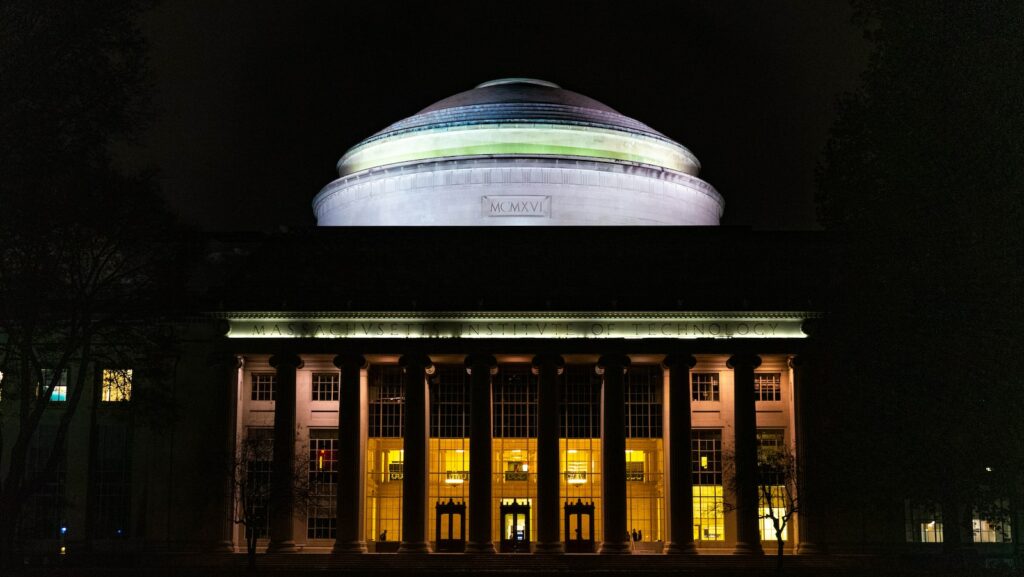The most modern college campuses in the US are rewriting the narrative of higher education, by introducing more up to date procedures to meet with the times. Picture a college campus where tradition meets innovation, where centuries-old institutions burst forth with modernity and creativity.
Bursting with state-of-the-art facilities, sustainable initiatives, and a palpable sense of creativity, these campuses are at the forefront of shaping the educational experience for the next generation. In a world where change is the only constant, these campuses stand as testaments to the power of adaptation and evolution.
Contents
- 1 What Make A College Modern?
- 2 8 Most Modern College Campuses In The US
- 2.1 Massachusetts Institute of Technology (MIT): Where Science Meets Ingenuity
- 2.2 Stanford University: Nurturing Innovation in Silicon Valley
- 2.3 University of California, Los Angeles (UCLA): Where Creativity Knows No Bounds
- 2.4 Cornell University: Fusing Tradition with Innovation
- 2.5 University of Texas at Austin: A Haven for Arts and Innovation
- 2.6 Georgia Institute of Technology: Shaping Tomorrow’s Engineers
- 2.7 University of Washington: Where Sustainability Takes Center Stage
- 2.8 Rice University: A Haven for Interdisciplinary Exploration
- 3 Conclusion: Most Modern College Campuses In The US
- 4 FAQs (Frequently Asked Questions)
- 4.1 Q1. What makes a college campus modern?
- 4.2 Q2. How do I find the most modern campuses for my field of interest?
- 4.3 Q3. Are modern campuses only for STEM fields?
- 4.4 Q4. How do these campuses prepare students for the future?
- 4.5 Q5. Can I visit these campuses to experience their burstiness firsthand?
What Make A College Modern?
A modern college is characterized by a dynamic blend of innovative features, educational philosophies, and state-of-the-art facilities. Here are some key elements that make a college campus modern:
Cutting-edge Facilities: Modern campuses boast advanced laboratories, research centers, and technology-integrated classrooms. These facilities provide students with hands-on experiences and the latest tools to explore their fields of interest.
Innovation and Research: A modern college emphasizes research and innovation across disciplines. It encourages students and faculty to push boundaries, collaborate on groundbreaking projects, and contribute to advancements in their fields.
Technology Integration: Technology is seamlessly integrated into the learning process. From online resources and digital platforms to interactive simulations and virtual reality tools, technology enhances education and promotes active learning.
Sustainability Initiatives: Modern campuses often prioritize sustainability through green building practices, renewable energy sources, recycling programs, and eco-friendly infrastructure. They educate students about environmental responsibility.
Interdisciplinary Learning: Modern colleges recognize the interconnectedness of different fields. They offer interdisciplinary programs that encourage students to explore diverse subjects, fostering a holistic and adaptable skill set.
Entrepreneurship and Innovation Centers: Many modern campuses have innovation hubs, entrepreneurship centers, and incubators that support students in turning their ideas into real-world ventures, encouraging a culture of innovation and creativity.
Global Perspective: Globalization is a cornerstone of modern education. Colleges encourage students to engage with international issues, study abroad, and collaborate with peers from around the world.
Diversity and Inclusion: A modern college values diversity and fosters an inclusive environment. It celebrates different backgrounds, cultures, and perspectives, enriching the educational experience for all.
Flexible Learning Spaces: Traditional classrooms are complemented by flexible learning spaces that accommodate various teaching methods, such as collaborative workstations, maker spaces, and interactive labs.
Digital Resources and Accessibility: Modern campuses prioritize access to digital resources, online libraries, and e-learning platforms. They also ensure that materials are accessible to students with disabilities.
Student-Centered Approach: Colleges focus on meeting the needs of students by providing personalized support, mentorship, counseling services, and career development resources.
Arts and Creative Expression: A modern campus celebrates creativity and the arts. It offers state-of-the-art studios, performance spaces, and galleries for students to express themselves and engage in artistic exploration.
8 Most Modern College Campuses In The US
Based on the information above, here are the 8 most modern college campuses in the US:
Massachusetts Institute of Technology (MIT): Where Science Meets Ingenuity
MIT is more than an institution—it’s a hub of scientific discovery and technological innovation. Bursting forth with cutting-edge research centers, state-of-the-art labs, and collaborative spaces, MIT fosters an environment where minds collide and ideas flourish. Walking through the Infinite Corridor feels like embarking on a journey through the bursting heart of innovation itself.
Stanford University: Nurturing Innovation in Silicon Valley
Nestled in the heart of Silicon Valley, Stanford’s campus bursts with the energy of entrepreneurship and technology. From the iconic Main Quad to the d.school, where design thinking reigns supreme, Stanford is a canvas for creative minds. It’s a place where the next big idea is always on the horizon, where students are encouraged to think beyond boundaries and embrace the unknown.
University of California, Los Angeles (UCLA): Where Creativity Knows No Bounds
UCLA’s sprawling campus is a microcosm of the vibrant city it calls home. Bursting with creativity, the campus houses top-notch art studios, performance spaces, and a thriving film school. Walking past the iconic Royce Hall, you’ll feel the pulse of artistic expression and cultural exploration.
Cornell University: Fusing Tradition with Innovation
Cornell’s campus bursts forth as an architectural marvel, where historic buildings seamlessly intertwine with modern structures. The College of Veterinary Medicine boasts state-of-the-art facilities, while the Cornell Tech campus on Roosevelt Island exemplifies the university’s commitment to pioneering technology and entrepreneurship.
University of Texas at Austin: A Haven for Arts and Innovation
Imagine a campus where the arts thrive alongside technological advancements. The University of Texas at Austin bursts with creativity—from the Moody College of Communication to the College of Fine Arts. The recently opened Moody Center, a world-class arena, exemplifies the university’s commitment to providing students with modern facilities for artistic expression.
Georgia Institute of Technology: Shaping Tomorrow’s Engineers
Georgia Tech’s campus is a playground for aspiring engineers and innovators. Bursting forth with advanced research centers and labs, the campus is home to cutting-edge robotics, sustainable energy solutions, and bioengineering breakthroughs. It’s where students harness the power of technology to tackle the challenges of the future.
University of Washington: Where Sustainability Takes Center Stage
UW’s commitment to sustainability bursts forth with LEED-certified buildings, rain gardens, and eco-friendly initiatives. Imagine attending class in a building that generates its own energy or strolling through the UW Farm, where sustainable agriculture is explored. It’s a campus where environmental consciousness is more than a buzzword—it’s a way of life.
Rice University: A Haven for Interdisciplinary Exploration
Rice’s campus bursts with the spirit of exploration and collaboration. From the Oshman Engineering Design Kitchen to the Moody Center for the Arts, the campus encourages students to bridge disciplines and explore new horizons. It’s a place where the boundaries between art and science blur, inspiring students to forge their own paths.
Conclusion: Most Modern College Campuses In The US
The journey through the most modern college campuses in the US is a testament to the power of innovation and adaptation. From MIT’s laboratories to Stanford’s entrepreneurial spirit, these campuses are bursting with potential, fostering environments where students can dream, create, and impact the world. The future of higher education is shaped by the burstiness of these campuses, where tradition meets progress and where students become catalysts for change.
FAQs (Frequently Asked Questions)
Q1. What makes a college campus modern?
Modern college campuses are characterized by their state-of-the-art facilities, incorporation of technology, sustainability initiatives, focus on interdisciplinary learning, and commitment to fostering innovation.
Q2. How do I find the most modern campuses for my field of interest?
Research universities renowned for programs related to your field of interest, explore their facilities, and delve into their commitment to innovation and technology integration.
Q3. Are modern campuses only for STEM fields?
While STEM fields often lead the charge in innovation, modern campuses cater to a wide range of disciplines, from the arts and humanities to business and social sciences.
Q4. How do these campuses prepare students for the future?
Modern campuses equip students with critical thinking skills, technological fluency, adaptability, and a global perspective—essential tools for success in an ever-changing world.
Q5. Can I visit these campuses to experience their burstiness firsthand?
Absolutely! Many campuses offer tours for prospective students to experience their facilities, programs, and vibrant atmosphere. Check the university’s official website for tour information.






